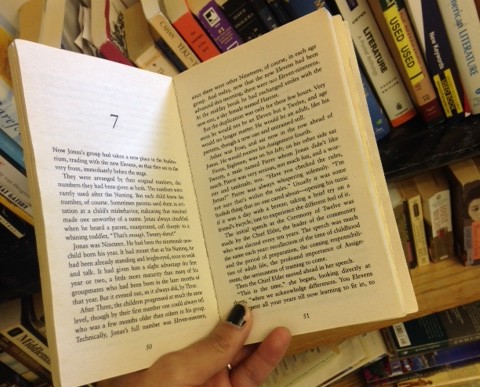English syllabi need more modern literature (Editorial)

The reading options of English classes need to change in order to accommodate students’ interest in reading.
March 18, 2014
It is rumored that Mark Twain once said, “I have never let my schooling interfere with my education.”
In the same way, we shouldn’t let English class ruin the books we read. With nothing against English teachers themselves, it’s hard for some of us to enjoy something we must do for a grade. Forcing students to read books lacking modern relevance or interest makes them less open to literature, in and out of school.
I do believe certain book types do need to stay in the syllabus, so that students can comprehend poetry and prose, and be able to read works in older or different dialects. However, more modern and popular books should be put in as well, as a redeeming factor for those less willing to read. This is hard to manage though, as newer books have an unfair stigma against them in many literary communities.
Classic literature, such as the older plays and epics, do form a backbone for English syllabi; yet some of this reading gets lost and feels dry, especially due to the outdated language. It is far from a good idea to remove all of these because they are essential to education. However, incorporating newer and more popular books into the syllabi would enhance many students’ experience in class, and hold the interest of those less willing to read.
Recently, Young Adult literature is starting to gain recognition and respect, particularly John Green and Chuck Palahniuk. Their books tend to interest high school readers, while also having literary substance.
Being more personally connected or drawn to the story will make it much better for the reader. In addition, academic consumption of modern and relatable literature could make English class more enjoyable for all students.































































































Selma Siekert • Jan 20, 2015 at 10:26 am
I completely agree with this article! It’s as though high schools do not acknowledge the existence of any authors after the 1990s.
Rachel Day • Oct 28, 2014 at 12:00 pm
It is important to read older books because you not only learn how to read the literature, but you simultaneously learn the history in the book. At the same time, old literature is quite unappealing to many people. I used to love reading, but since I started high school, I rarely have time to read a book other than one I am being required to read for English class. I think new literature should be combined with older literature, and this would make students more interested in reading.
Alec Di Ruzza • Mar 31, 2014 at 11:50 pm
I personally think that while the older literature loses in appeal to many teenagers, the content of many of the classic novels in the curriculum should not go unnoticed and should still be taught and discussed as to not lose ties with our past.